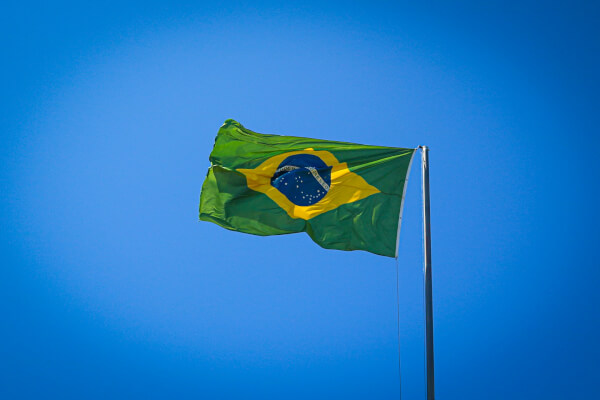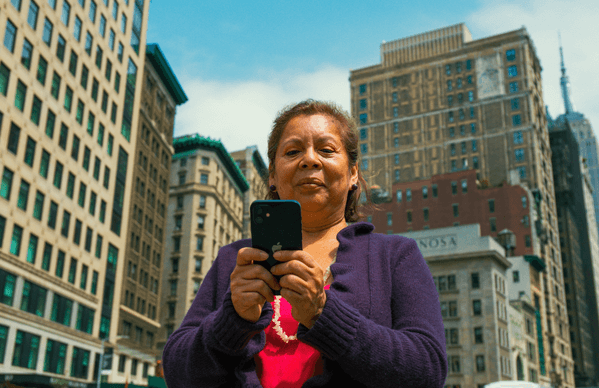Hispanic Heritage Month: Shaping the future of remittances together
Remittances tell a powerful story of sacrifice and hope. These transfers of money, sent by people living and working in the U.S. to their families in their home

Today is the International Day of Family Remittances (IDFR), which was adopted by the United Nations (UN) General Assembly to recognize the more than 200 million individuals worldwide who send money home to 800 million family members. Today, we celebrate the resilience of workers who have faced a global pandemic, economic turmoil, and even natural disasters to send money across borders to their families.
As we recognize IDFR, we also must take a look at how policy impacts these payment flows, and where the U.S. has fallen behind. The average cost of sending remittances abroad is 6.4%, a long way from the UN sustainable development goal of 3% remittance costs by 2030. Unfortunately, one of the reasons costs stay so high is because of the billions lost in hidden fees. Banks and remittance providers often advertise low-cost, or even “free” services, while marking up the exchange rate as much as five percent or more.
Globally, real progress has been made to address these hidden fees. A powerhouse task force made up of the UN, World Bank, and International Fund for Agricultural Development (IFAD) recommended total cost transparency in remittances in late 2020. The Financial Stability Board (FSB) made a similar recommendation just this month as part of their target metrics for transparency in their cross-border payments initiative. The World Bank already emphasizes “total cost” on its remittance price tool, and has stated that, “[t]he single most important factor leading to high remittance prices is a lack of transparency in the market.”
Worldwide, policy makers are taking action. The European Union (EU) has enacted rules for intra-EU online transactions, while theUK andAustralia are actively seeking increased transparency on cross-border payment fees.
But where is the U.S. in this conversation? The U.S. is the largest source of remittance payments in the world, sending $71.6 billion in remittances in 2019 alone and paying an average fee of nearly six percent. A lack of price transparency on international payments impacts our American friends, families, and neighbors with $8.7 billion in hidden fees every year.
Yep, you read that right: independent research found that American consumers and small businesses were charged $16.3 billion in fees when sending or spending money abroad, with more than half ($8.7 billion) hidden in exchange rate markups. Broken down, this research found that hidden fees hit remittances, vacationers, students abroad, small businesses, and even our service members stationed overseas sending home to their families. Further, while 55% of consumers said they understood the costs of sending money abroad, only 18% correctly identified exchange rates as a source of the costs. Despite these costs and lack of awareness, U.S. policymakers have not taken action on this issue. We want this to change.
U.S. policymakers must act to ensure the fees shown to consumers include inflated exchange rates. We’re calling on the Consumer Financial Protection Bureau (CFPB) to update its Remittance Rule to require disclosures to show the “total cost” that includes both exchange rate margin and upfront fees. The exchange rate shown to consumers would be based on the active mid-market rate. With increased awareness of the total cost of sending money abroad, consumers are more likely to choose better options, leading to healthy competition in the market and bringing down remittance costs worldwide.
For those of you who, like me, have sent money home either while working abroad or to family abroad, I wish you a happy International Day of Family Remittances. We will keep working hard to stop hidden fees.
*Please see terms of use and product availability for your region or visit Wise fees and pricing for the most up to date pricing and fee information.
This publication is provided for general information purposes and does not constitute legal, tax or other professional advice from Wise Payments Limited or its subsidiaries and its affiliates, and it is not intended as a substitute for obtaining advice from a financial advisor or any other professional.
We make no representations, warranties or guarantees, whether expressed or implied, that the content in the publication is accurate, complete or up to date.

Remittances tell a powerful story of sacrifice and hope. These transfers of money, sent by people living and working in the U.S. to their families in their home

So, will “fee-free” and “no fee” advertising disappear tomorrow?

There should be nothing to hide Sending money abroad is a big deal for many Brazilians living international lives. You might be supporting your family,...

“Junk fees” were certainly a buzz word of 2023, as the Biden Administration announced a crackdown across industries to protect American consumers. The White...

In a year, US military service members spent more than $455 million on foreign exchange fees. Of that, $301 million was lost in hidden fees.

Wise was founded by immigrants, built by immigrants, and is used by immigrants.